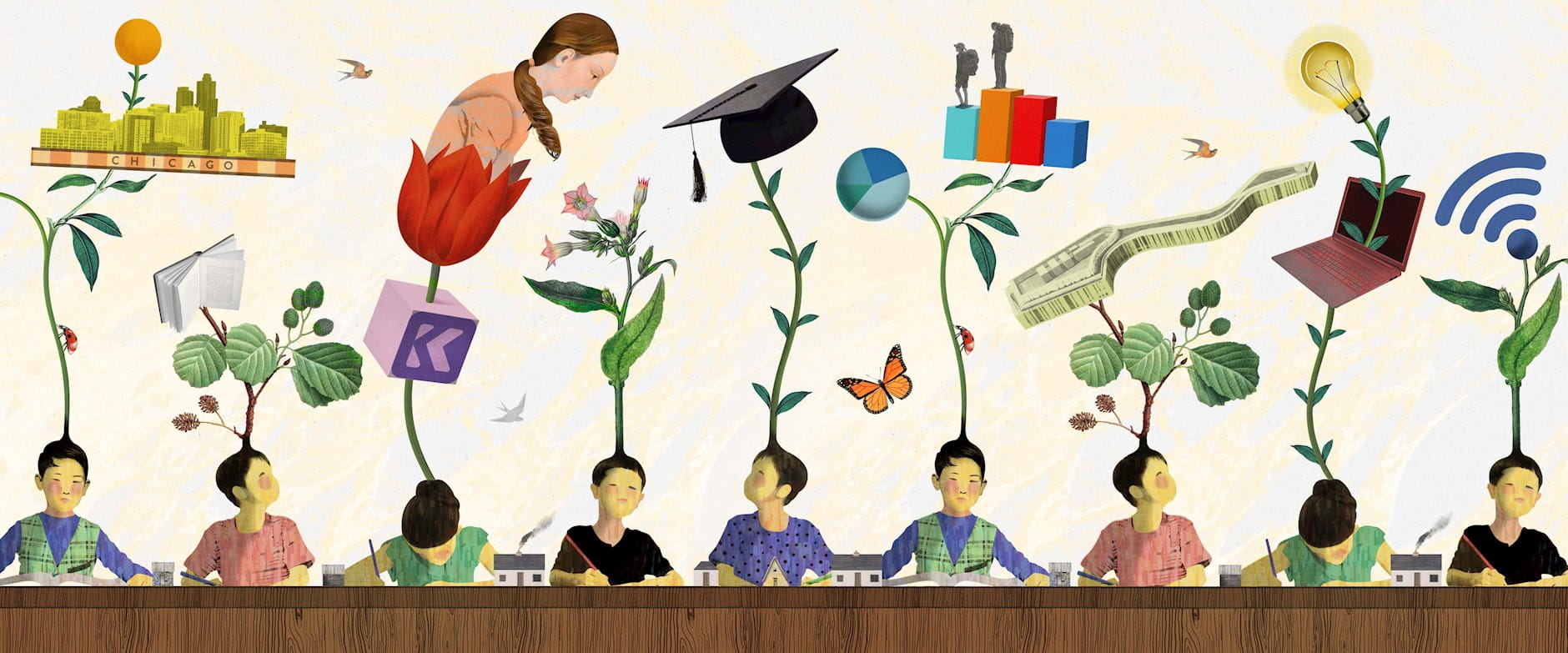
Just the Right Pitch
Harboring memories of a childhood love of baseball, Hamilton Chang, ’93, has spent his retirement dedicated to entrepreneurship in the sport.
Just the Right Pitch
Illustration by Brett Ryder
Growing up in the Chicago suburbs, I knew early on that I wanted to live and work in Asia. I was intentional about learning Chinese culture and history at school and was fortunate to travel to China with a close friend in 2008. I was able to visit Hong Kong, Macao, Guangzhou, and Zhongshan, and the immersion helped me really learn Chinese.
When I graduated from university, I joined Teach For China, whose mission is to close the education gap between rural and urban environments. I was placed alongside recent graduates from China and the United States in remote areas of Yunnan, a southwestern Chinese province.
The village I lived and worked in, Dachaoshan in Lincang prefecture, had never had a foreign guest reside there. We were pushing for education infrastructure in a community that lived at or below poverty level. The benches, tables, wall hangings, and chalkboards were all falling apart. Some 70 students were crammed into a room meant for 25 people. There was no clean drinking water and the students and teachers were frequently out sick.
Some other volunteers and I fundraised for a water filtration system. We also installed the school’s very first library with the help of Judith’s Reading Room, a nonprofit in Lehigh Valley, Pennsylvania, dedicated to literacy. Our students previously had only textbooks and outdated periodicals, but now had 10,000 books available to them.
In my second year, the government stepped in and provided brand-new facilities—chairs and desks for each student, smartboards, and a computer for the first time. The school principal was supportive and believed in the changes; he was willing to risk criticism from local officials and others in the community.
These initiatives were incredibly inspirational for me. It was eye opening to see how government policies and the efforts of local community members and volunteer teachers could transform lives. Before, I had wanted to be a lawyer. These experiences totally changed my outlook and purpose. I wanted to inspire young students to help support vulnerable communities.
In 2018, I joined Keru, a Shanghai-based education startup founded by a colleague from Teach For China. It works to provide middle- and high-school students with transformational real-world experiences, to help them realize that what we learn in school can bring huge benefits to our communities.
I did marketing, supported sales, and helped handle operations, but I knew that if we wanted to scale, I would have to take on more responsibilities and would need more formalized training.
I wanted an international MBA program with networks and resources on a global scale that did social impact work. I also wanted to go to a campus near where I was based, in Shenzhen, so I could study with Chinese and Hong Kong–based students with international outlooks. Booth, with its Hong Kong campus and the Rustandy Center for Social Sector Innovation, was an obvious choice.
Some of my classes, such as accounting, proved practically useful in my role as COO tracking Keru’s financial progress. I also learned pricing strategies, which helped us to place our product at the right price in the market.
The overall value of my MBA has been in my new network of classmates and professors, as well as the foundational skill sets I learned—like how to approach problems and think creatively about solving them. I’ve recently been promoted from COO to CEO, and am keen to build and scale what we have been doing since 2016 to make a positive impact on vulnerable communities.

Harboring memories of a childhood love of baseball, Hamilton Chang, ’93, has spent his retirement dedicated to entrepreneurship in the sport.
Just the Right Pitch
After a career in electrical engineering and utilities, Abbie Ela Wallhaus, ’97, made a pivot into the nonprofit world.
Finding Her Spark
The Stevens Doctoral Program has trained researchers to share across disciplines, challenge ideas, and transform our understanding of business.
The Booth PhD at 100: A Century of Discovery